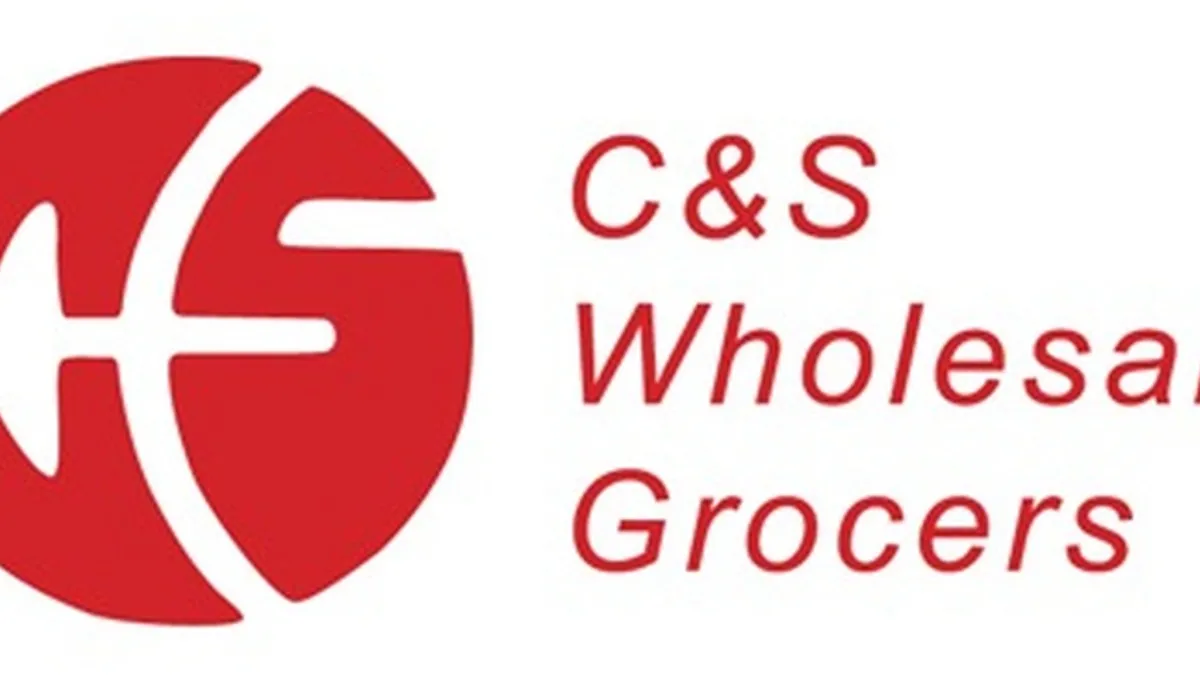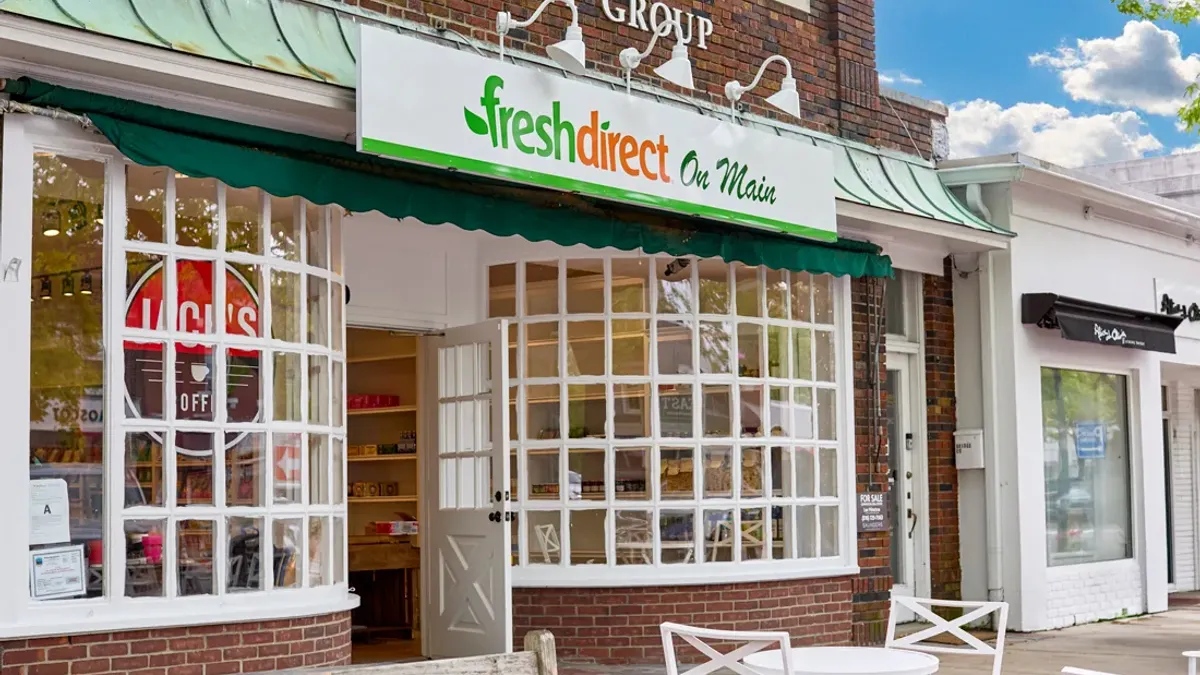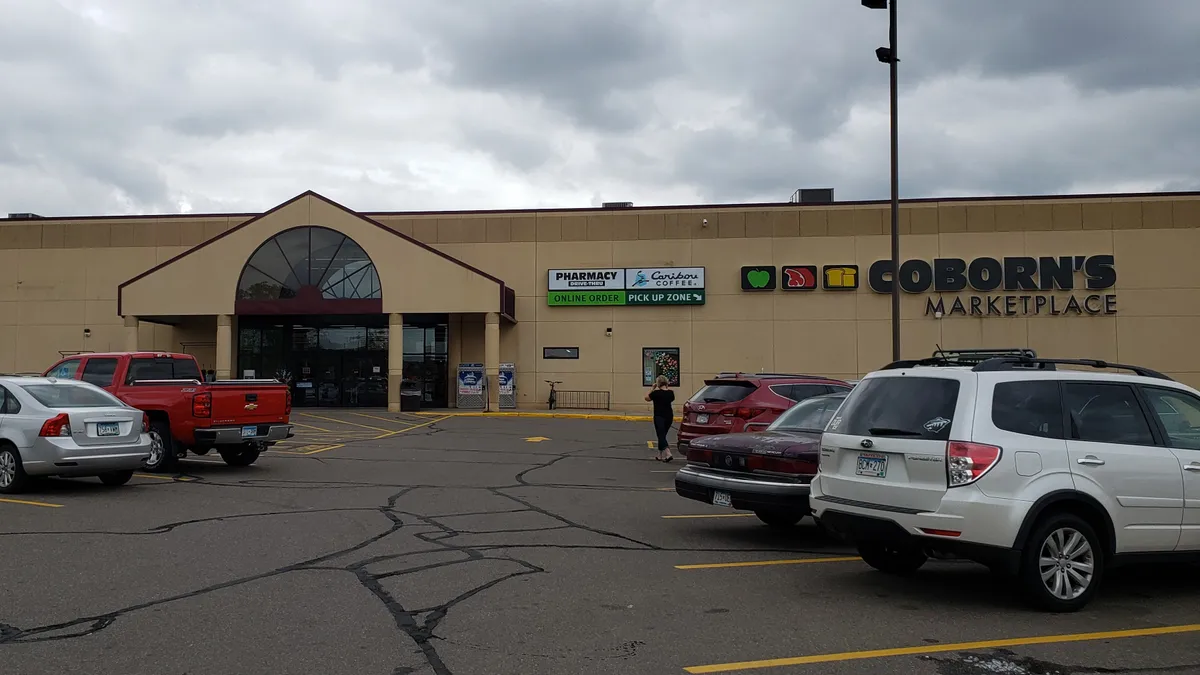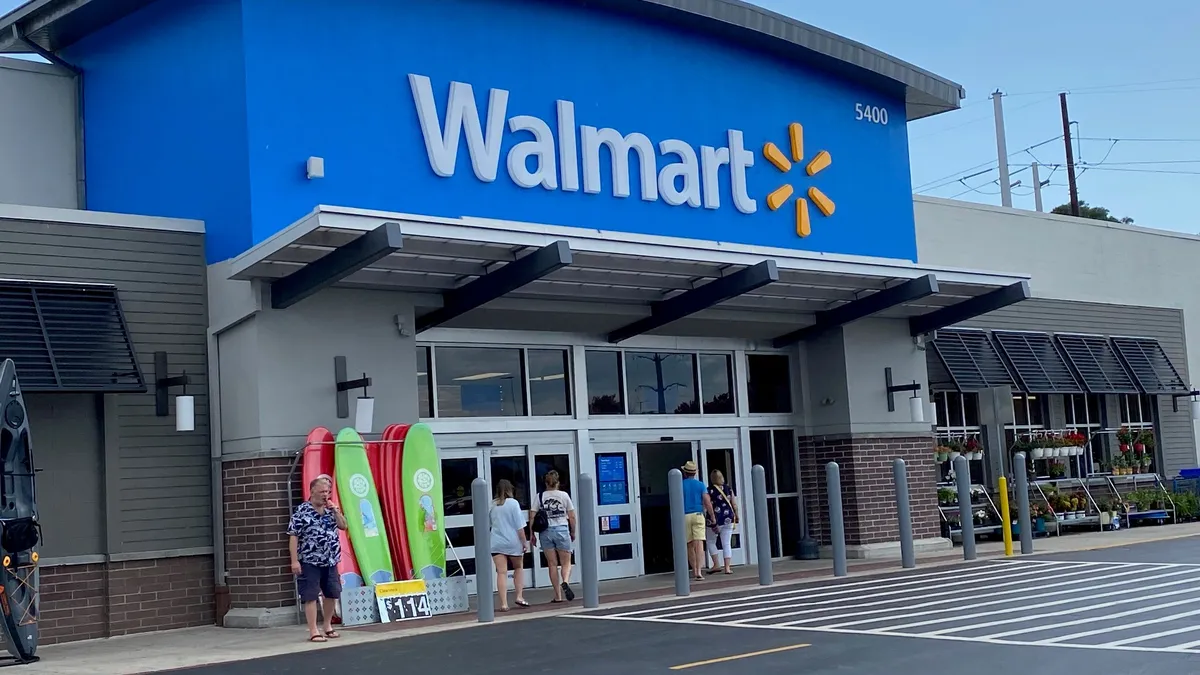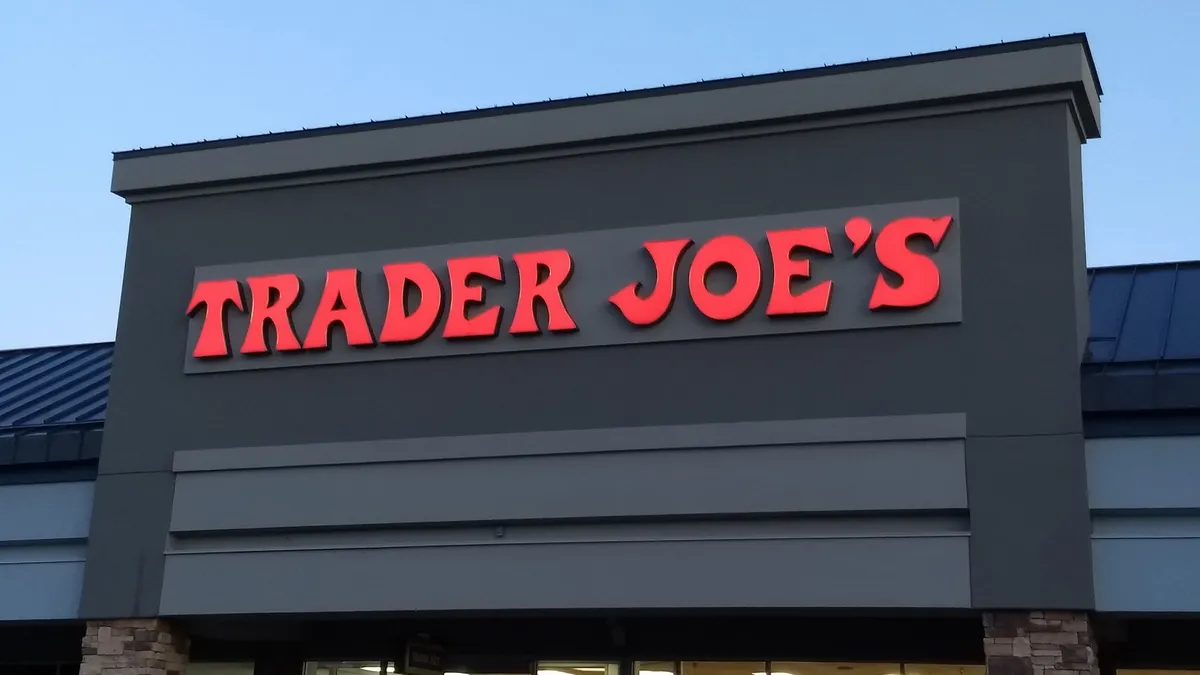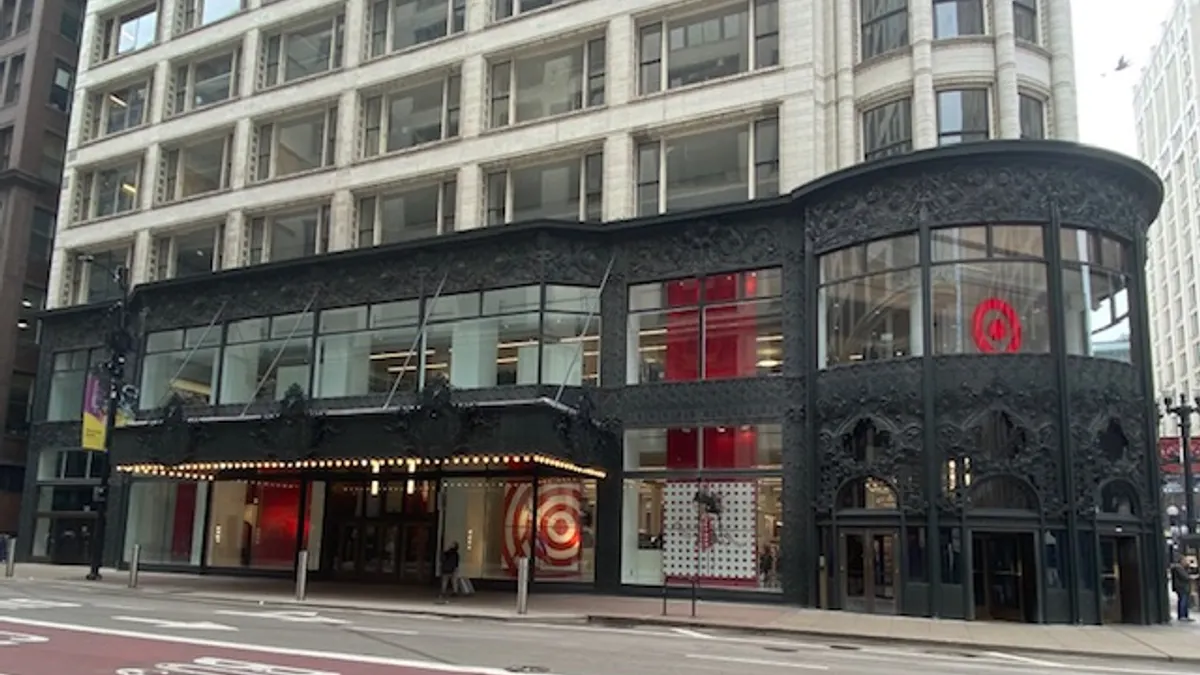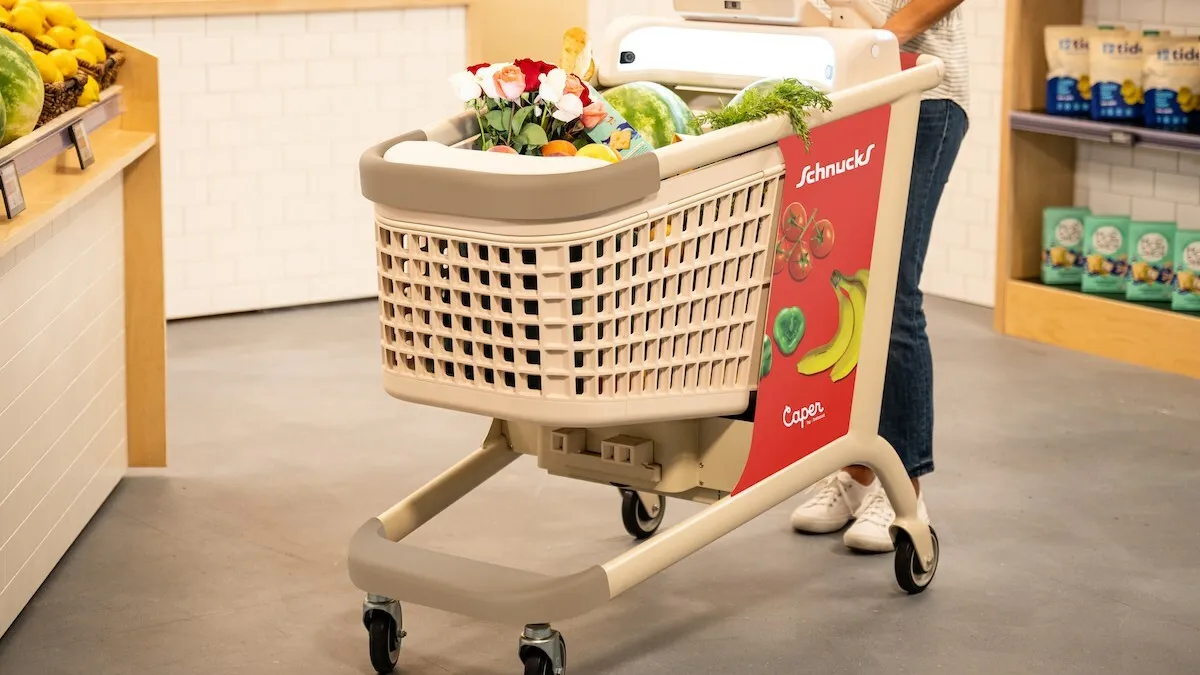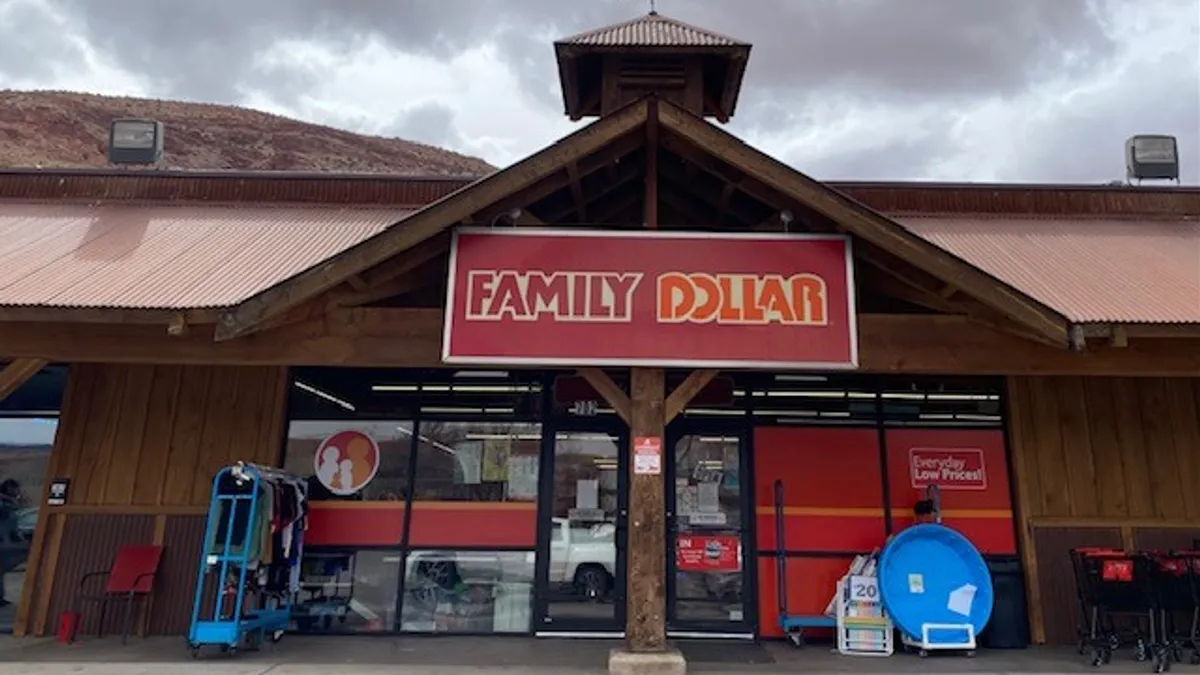The last time Kroger brought on a new CEO was in January 2014. At that point, the company was riding high in the grocery industry: It was just about to close on its $2.5 billion acquisition of Harris Teeter, the tumult of the COVID-19 pandemic was still years away and Walmart had yet to assume the commanding role it now plays in the U.S. food retail sector.
A lot has changed over the past decade.
As Kroger looks for a successor to Rodney McMullen — who departed abruptly in early March after more than 11 years as the company’s chief executive — the grocer faces much less favorable circumstances that have industry experts wondering whether it can regain its former glory. Some of those conditions, like the enormous reach of competitors like Walmart, Costco and Amazon, are beyond its control, while other challenges are a direct result of decisions Kroger made when McMullen was in charge, according to analysts.
“The golden age of Kroger was before Rodney took over,” said Scott Mushkin, CEO of R5 Capital, referring to Kroger’s approach to the grocery industry under David Dillon, McMullen’s immediate predecessor as Kroger’s CEO. “If you just look at the business … I would say they’re kind of bumping along, kind of hanging on a little bit rather than thriving.”
Kroger’s challenges include recovering from its unsuccessful effort to merge with Albertsons — a transaction McMullen crafted and championed as CEO. The company faces lawsuits from Albertsons and C&S Wholesale Grocers, which had agreed to acquire nearly 600 divested stores in connection with the deal. Albertsons and C&S both allege that Kroger is responsible for the deal’s demise under pressure from regulators.
In its suit, filed in December, Albertsons claims that Kroger damaged the companies’ chances of winning approval for the merger because it was unwilling to develop more robust divestiture plans. Kroger responded with its own allegations, claiming that Albertsons worked secretly with C&S on a “misguided campaign” that led to the disintegration of the deal.
Albertsons and C&S are also demanding that Kroger pay them termination fees of $600 million and $125 million, respectively. Kroger has refused to do so, claiming that Albertsons and C&S forfeited the fees.
Under Dillon, Kroger focused heavily on basic operational details, like the length of checkout lines, customer service and store cleanliness, all of which helped the company maintain its position as a leader in the grocery space, Mushkin said. But more recently, Kroger has been less effective at communicating its value proposition to consumers than rivals like Sprouts Farmers Market and Publix, he added.
“It’s very difficult when you’re multi-banner, multi-regional, with different go-to-market strategies, to define what you are,” said Mushkin. “It's the challenge for whoever takes over Kroger: Why, as a consumer, should I shop you beyond location?”
A key issue for Kroger as it plots its future course is that its prices look more expensive to consumers than other retailers, a contrast that is exacerbated by Kroger’s dependence on promotions while Walmart has an everyday low-pricing model, said Karen Short, managing director and head of consumer and retail research for Melius Research.
“They’ve gotten themselves completely out of whack on pricing relative to their competitors,” Short said. “And I don’t know how you dig yourself out of all of that, because Walmart is increasingly giving you a reason to not go to Kroger.”
One way for Kroger to counter the perception that it charges more than Walmart for groceries would be to sacrifice its earnings for a while in order to invest in bringing down prices, Short said. However, that could prove to be a hard sell to investors given that the company’s operating profit and sales have been under pressure.
While Kroger’s stock price grew at a significantly faster clip than Walmart’s between 2013 and 2015, the trend reversed starting in 2016, with Walmart widening its lead during the past year, according to a research note Short and fellow Melius analyst Jacob Aiken-Phillips issued on March 14. On Tuesday, Short and Aiken-Phillips downgraded their rating of Kroger’s stock to “sell,” citing Walmart’s surging strength in grocery, Kroger’s leadership void and the legal actions brought by Albertsons and C&S as reasons investors should unload their shares.
Short also said Kroger’s search for a replacement for McMullen presents it with a unique opportunity to change course, adding that the company — which is currently under the leadership of Ronald Sargent, who is serving as chairman and interim CEO — should look outside for a new leader.
“I think Kroger is rudderless, and they need somebody who is going to bring new blood and new life and new thought,” she said.
Speaking during an earnings call on March 6, Sargent said Kroger intends to consider candidates to replace McMullen from within its ranks and outside the company.
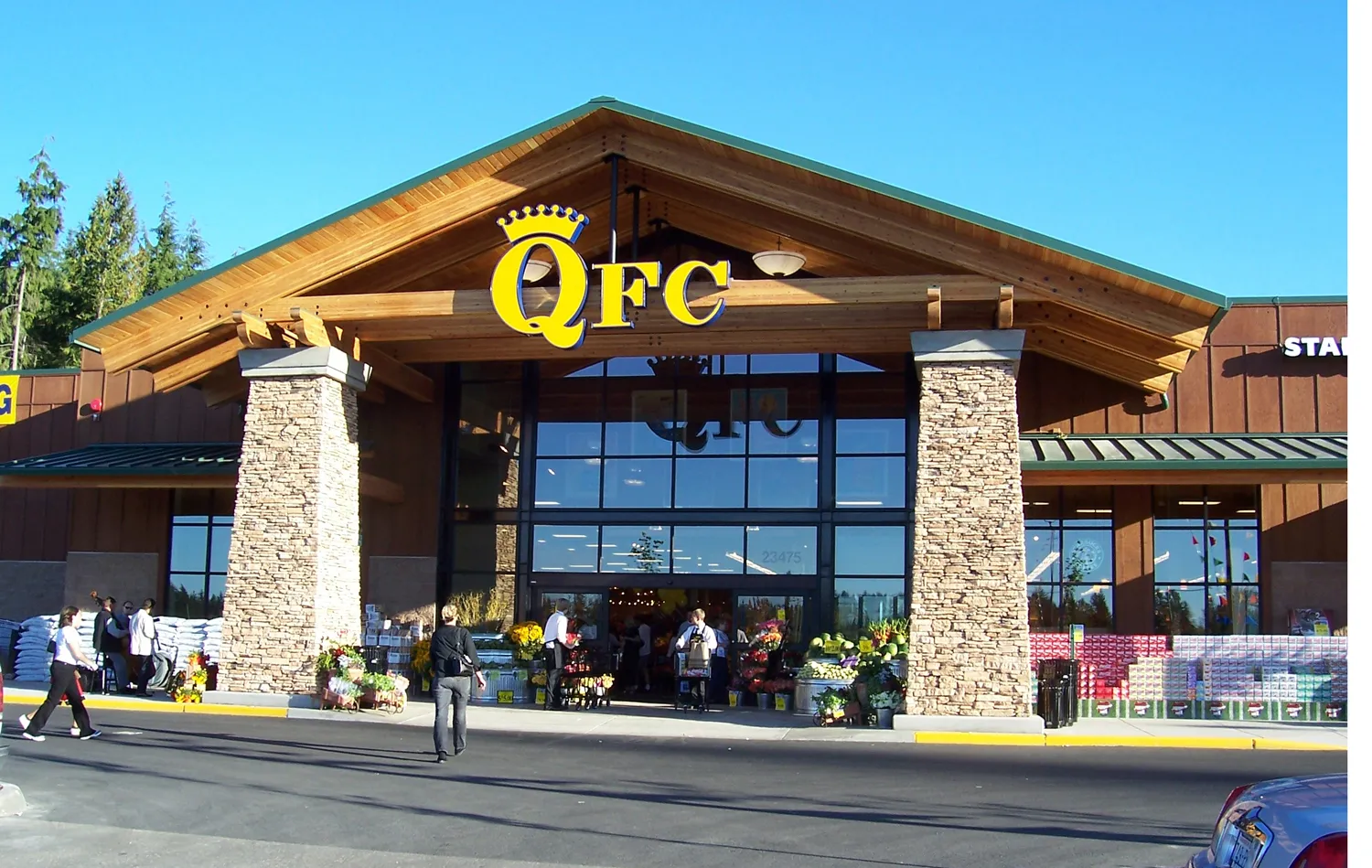
A new leader could likely help Kroger move past issues such as the failed combination with Albertsons and instead focus on reframing its relationship with consumers, said David Halliday, associate teaching professor of strategic management and public policy at the George Washington University School of Business.
“The time to do that is when a new CEO comes in. A new CEO can set a long-term plan, [while] an existing CEO is going to have a harder time making tough decisions like trading off profits for a viable long-term pricing strategy,” Halliday said. “The pricing strategy can't just be selling cheap food … but something that viably connects with customers and gives customers more value than they’re getting now.”
Short said Kroger’s efforts in recent years to double down on its data operations and invest in the multibillion-dollar network of automated fulfillment centers it has developed with Ocado are also weighing Kroger down at a time when it needs to find ways to stand out.
Short added that Kroger’s efforts to invest in alternative profit businesses, which include its data analysis and third-party media operations, have distracted attention from weaknesses in its core grocery business. In addition, the Ocado project has cost much more than expected, she said.
As Kroger considers whom to hire to lead it going forward and how it should adjust its strategy, the company would do well to stay grounded in its roots as a supermarket operator, said Doug Munson, head of advisory services business development for retail intelligence provider RetailStat.
Although the pressure to compete head-to-head with major competitors is intense across areas like e-commerce, pricing and non-grocery revenue streams, Kroger should focus more on improving the quality and distinctive value of its core grocery business, Munson said.
Kroger is “not going to beat the WinCos and the Walmarts on pricing, but the narrative should be, ‘When you come here, this is where you get your staples. This is your fundamental grocery store,’” Munson said.
More immediately, analysts will be looking for Kroger to clarify its vision about where it fits in the grocery landscape, said Michael Infranco, assistant vice president of RetailStat.
“We haven’t had the clearest strategies overall, the top-to-bottom strategy of what they want to be,” Infranco said. “We need that from a new leader: to be a little more specific about what the end game is.”
Correction: A previous version of this story misspelled the name of WinCo Foods.






